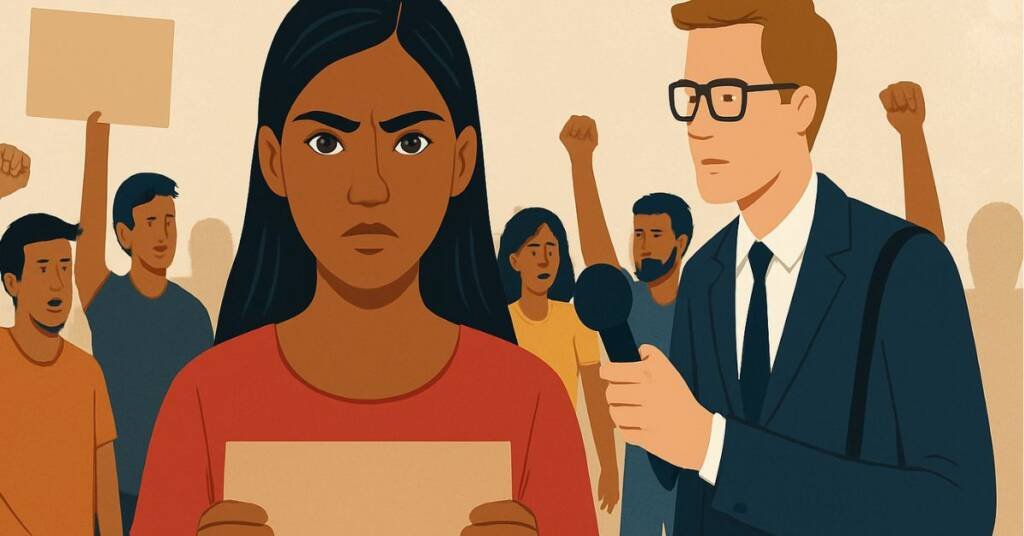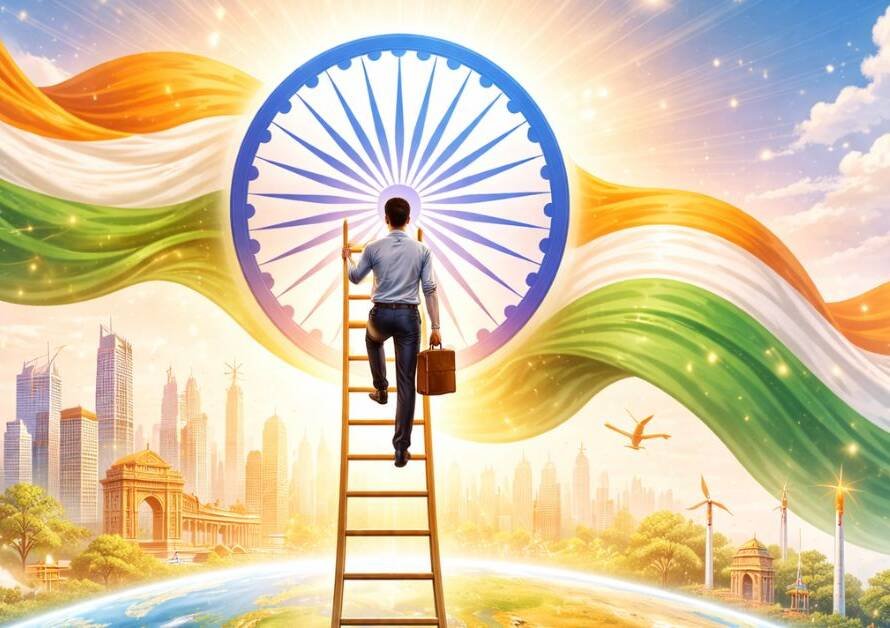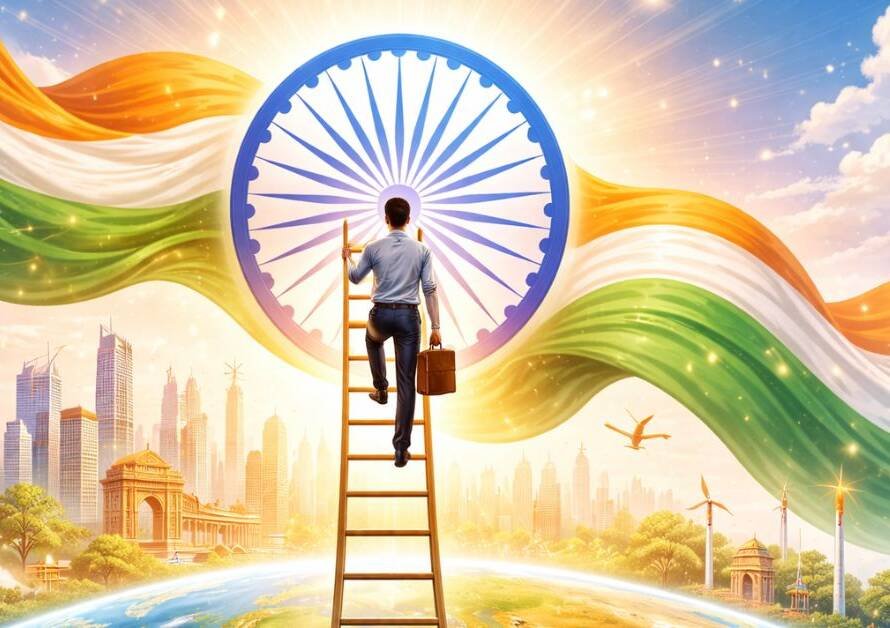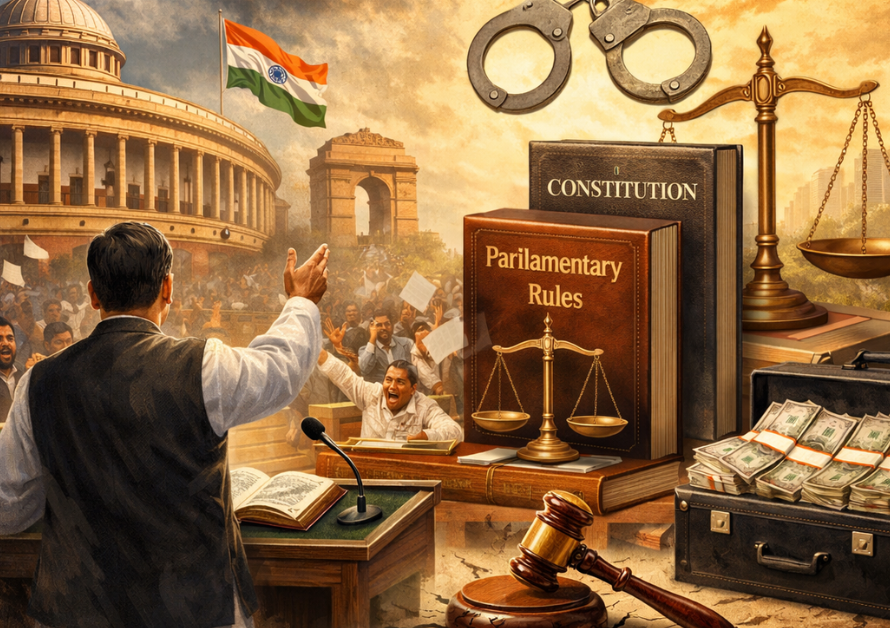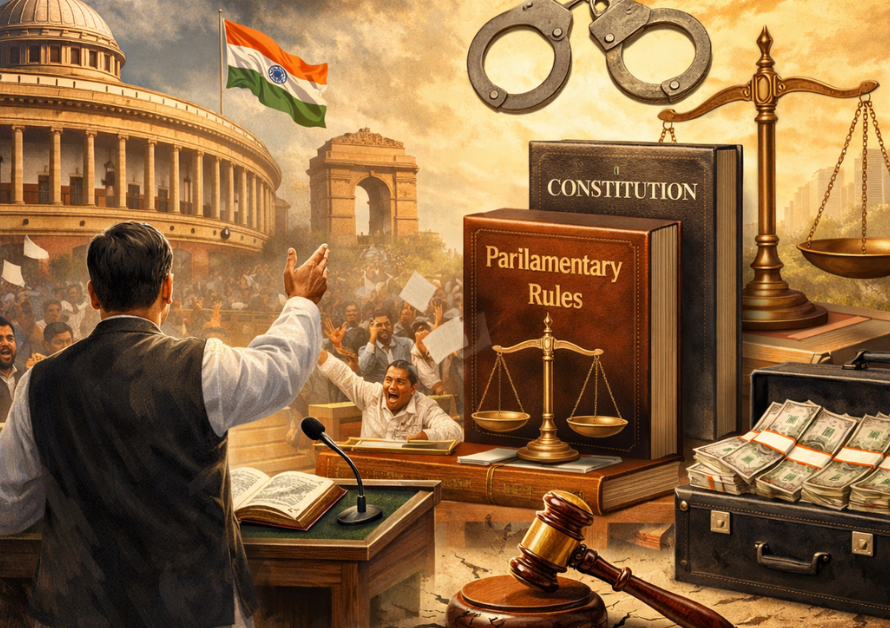Western media, especially the BBC, seems perpetually allergic to Indian success.
- Whenever India rises, the BBC finds a way to twist the story—painting progress as peril, and democracy as division.
- Their recent portrayal of India’s Gen Z as a generation “simmering with anger” and ready for revolt is not journalism.
- It’s a psychological operation disguised as reporting—an attempt to discredit India’s youth and destabilize faith in its democracy.
1. BBC’s Manufactured Crisis: Turning Growth Into “Unrest”
- In a sweeping generalization, the BBC claims that India’s 370 million youth are on the verge of rebellion, citing selective protests from Ladakh to Karnataka as signs of “a brewing storm.”
- They compare India’s youth with those of Bangladesh, Nepal, and Madagascar—nations struggling with unstable governments, corruption, and economic collapse.
- But this lazy equivalence collapses before facts. India is the world’s fastest-growing major economy, the largest democracy, and a technological powerhouse.
- Its youth are not setting the streets on fire—they’re building startups, creating jobs, and transforming governance.
- This “crisis” exists only in BBC’s newsroom, not on India’s streets.
2. Ground Reality: India’s Youth Are Reformers, Not Rebels
- The BBC conveniently ignores that India’s youth are more politically aware and participative than ever before.
- In the 2024 general elections, youth turnout touched 66%, with millions of first-time voters casting ballots through both digital and physical means.
- India is home to over 100 unicorn startups—valued at more than $350 billion—founded largely by entrepreneurs below 35.
- Youth-led initiatives under Startup India, Digital India, and Skill India are empowering a generation to solve real-world problems—from climate tech to AI-driven agriculture.
- This is not a disillusioned generation—it’s a generation of doers, not dreamers.
- Even in protest, India’s youth act within the framework of democracy.
- From the Jallikattu movement in Tamil Nadu to farmers’ demands in Punjab, every agitation—whether local or national—has eventually been resolved through dialogue and the Constitution.
- That is the strength of Indian democracy, not its weakness.
3. Twisting Diversity Into “Division”
- The BBC’s article mocks India’s diversity, calling it a source of “fragmentation.” This betrays a shallow understanding of Bharat’s civilizational essence.
- India’s diversity is not chaos—it is coherence built over millennia. The coexistence of languages, customs, castes, and beliefs is what makes India a living civilization, not a mechanical nation-state.
- Our youth celebrate this unity in diversity every day—from coding in Bengaluru to serving in the armed forces in Siachen, from innovating in Pune to leading global firms in Silicon Valley.
- What the BBC perceives as “division” is actually the strength of our pluralism, the very thing the West once claimed to uphold but has long abandoned.
4. False Parallels and Colonial Hangover
- By comparing India’s democracy to the unrest in smaller nations, the BBC exposes its ignorance.
- Nepal and Bangladesh have repeatedly suffered military interventions, constitutional breakdowns, and authoritarian regimes.
- India, on the other hand, has held free and fair elections since 1952—even in times of war and crisis.
- Its Constitution has weathered communal violence, terrorism, and regional agitations. Suggesting that India’s youth are about to trigger an uprising is not only absurd—it reeks of colonial condescension.
- It’s the same old tone: the white savior diagnosing “native instability.”
5. Selective Outrage: Dissent as Drama
- BBC’s report laments that dissent in India is being “stifled.” But where was this outrage when Western democracies crushed student protests on their own campuses in 2024 over Gaza or climate change?
- In India, protests happen daily—peacefully, publicly, and legally. Yet, the BBC calls them signs of “authoritarianism.”
- It quotes fringe activists and discredited political figures to paint India as intolerant while ignoring how courts, Parliament, and media platforms freely debate every major issue—from CAA to farm laws.
- The irony is glaring: the BBC celebrates protest in India but silences criticism of its own biases at home.
6. Ignoring Empowerment and Opportunity
- Nowhere does the BBC acknowledge the scale of transformation happening for India’s youth.
- Skill India has trained over 12 million young Indians for modern jobs in manufacturing, AI, and service industries.
- NEP 2020 has opened global-standard universities, integrated technology in learning, and allowed flexibility of subjects unseen in Western systems.
- Digital India has made India the world’s largest digital democracy, with youth driving innovation from remote villages to megacities.
- BBC’s narrative of despair simply cannot survive with these facts. India’s Gen Z isn’t running from the system—they’re redesigning it.
7. BBC’s Bias: The Empire Never Retired
- The BBC’s hostility toward India didn’t begin today. From the early days of independence, it has been a megaphone of colonial nostalgia—questioning India’s unity, mocking its faith, and doubting its progress.
- It demonized India’s nuclear tests in 1998, ridiculed its space program as “impractical,” and recently smeared Prime Minister Modi’s leadership with half-truths and unverifiable claims.
- Its dependence on anti-India voices, many aligned with opposition politics and foreign-funded NGOs, reveals not journalism—but agenda.
- The empire may have left our shores, but its mindset lingers in BBC’s editorial rooms.
8. The True Gen Z: Patriots With Purpose
- India’s Gen Z is neither apolitical nor anarchic. They are digital natives rooted in Dharma, culture, and nationalism. They debate vigorously but respect the nation’s integrity.
- From engineers in Bengaluru to farmers in Haryana, from social entrepreneurs to soldiers, this generation embodies a balance between tradition and technology. They seek reform—not rebellion; opportunity—not chaos.
- They are inspired by Bharat’s ancient wisdom and modern ambition—standing as the bridge between our glorious past and the Viksit Bharat of 2047.
9. The Real Threat: Foreign Narratives, Not Youth Unrest
- If there’s one destabilizing force today, it isn’t India’s youth—it’s the propaganda being manufactured abroad.
- Western media outlets like BBC, Guardian, and Al Jazeera constantly distort India’s reality to weaken its global credibility.
- By projecting India as a “fractured democracy,” they serve both geopolitical and ideological interests—protecting Western hegemony and empowering anti-national elements within India who crave external validation.
- But Bharat’s youth have outgrown this mental colonization. They no longer seek approval from London or New York.
- Their only benchmark is excellence—and their only loyalty is to Bharat.
10. The BBC’s Failure, India’s Triumph
- The BBC can continue spinning its web of distortions, but India’s story will still shine through. The youth of this nation are rewriting destiny—with code, courage, and conviction.
- They are not rebels without a cause—they are revolutionaries with a vision. A vision of a strong, prosperous, united Bharat where democracy thrives, Dharma guides, and development uplifts every life.
- No foreign broadcaster can define this generation. They are the builders of a new civilization—Sanatana Bharat 2.0—and their time has arrived.
🇮🇳 Jai Bharat, Vandematram 🇮🇳
For old Blogs please visit our website www.saveindia108.in
To join our whatsapp Community please click
https://chat.whatsapp.com/FMr2WNIgrUVG9xK78FW5Dl?mode=r_t
To join our Telegram group please Click https://t.me/+T2nsHyG7NA83Yzdl Old Blogs are available on the telegram group also.

